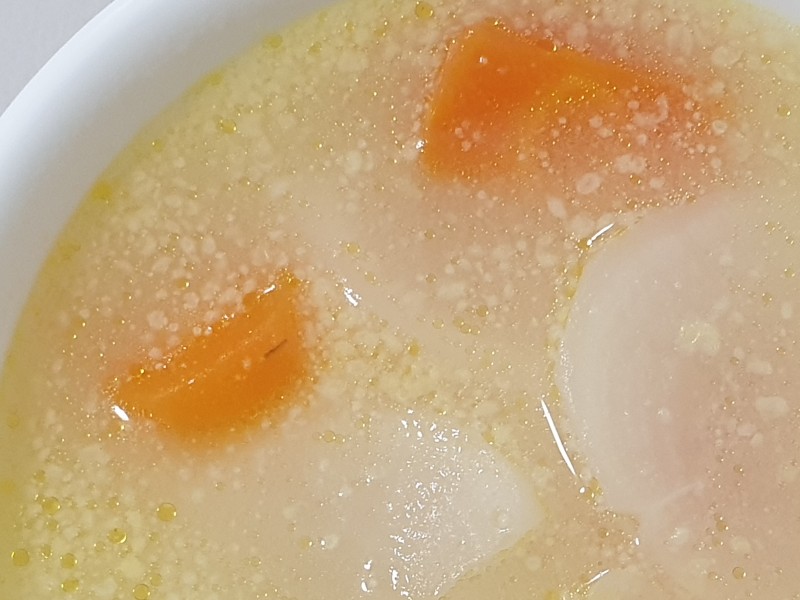
White Radish
Benefits and Recipes
White Radish
White Radish, is also known as Daikon, Japanese radish, Chinese radish, winter radish, luobo.
Nutritional Benefits of White Radish:
According to article from Dr. Li Shi Lian, deputy chief physician of the Department of Nutrition and Dietetics, Beijing Children's Hospital Affiliated to Capital Medical University, and is published on “You Lai Doctor”, White Radish,
To listen to this article, click below button:1. White radish can reduce inflammation and relieve cough. White radish is grown in large areas in most areas of China. You may drink it as a drink by boiling it with hot water. White radish is cool in nature and sweet in taste. It is rich in vitamin C and trace element zinc, which can effectively help the body improve its disease resistance. White radish has the effects of anti-inflammatory, resolving phlegm, relieving cough, and regulating qi. It can help relieve various diseases including colds. The combination of white radish and pears is a good food for relieving coughs. Other natural foods that assist respiratory system.
Other natural foods that assist respiratory system. Other anti-inflammatory natural foods.
Other anti-inflammatory natural foods.
2. White radish can promote digestion. White radish is rich in mustard oil, crude fiber, amylase, as well as a variety of amino acids, trace elements, carbohydrates, minerals, etc. Drinking the juice of white radish can promote digestion and speed up gastrointestinal motility. It is good for indigestion and nausea. The radish is effective for symptoms such as vomiting, oral ulcers, and constipation.  Other digestive healthy food.
Other digestive healthy food.
3. White radish is antioxidative. The vitamin C in white radish can help delay skin aging and inhibit the formation of melanin spots. Regular consumption of white radish may keep the skin white, tender and smooth. Other skin care and anti-aging natural foods.
Other skin care and anti-aging natural foods.
 Editor’s view (Click to read more)
Editor’s view (Click to read more) Consumption of new food (Click to read more)
Consumption of new food (Click to read more)
 Do you know? Heterocyclic amine is a chemical that is formed when meat, poultry, or fish is cooked at high temperatures, such as frying, boiling, and barbecuing. “Heterocyclic amines” are carcinogens (substances that may cause cancer). It is also called HCA. Source: National Cancer Institute (of United States)
Do you know? Heterocyclic amine is a chemical that is formed when meat, poultry, or fish is cooked at high temperatures, such as frying, boiling, and barbecuing. “Heterocyclic amines” are carcinogens (substances that may cause cancer). It is also called HCA. Source: National Cancer Institute (of United States)

